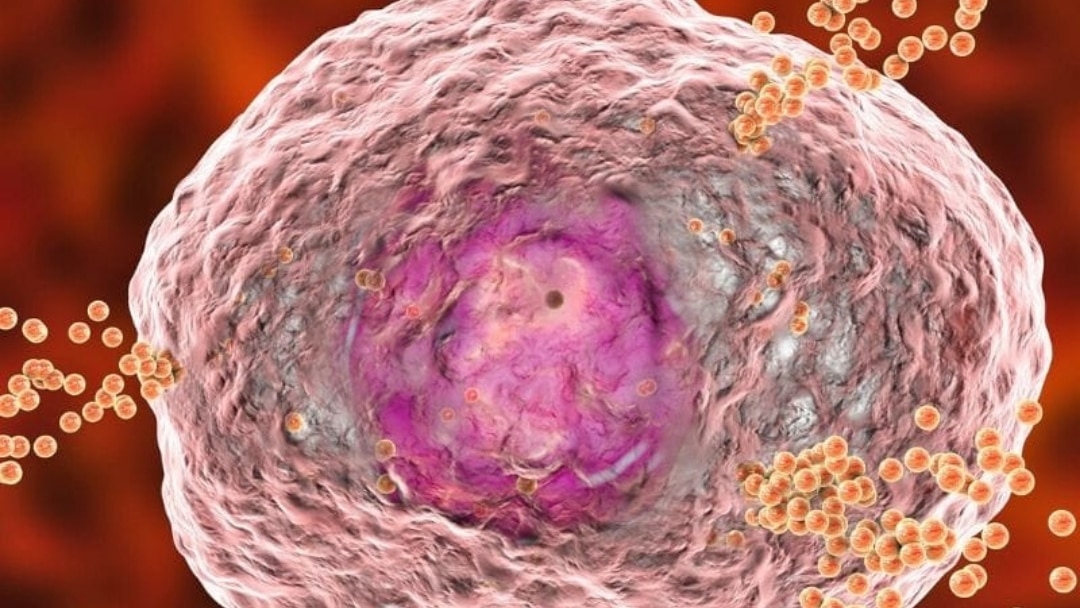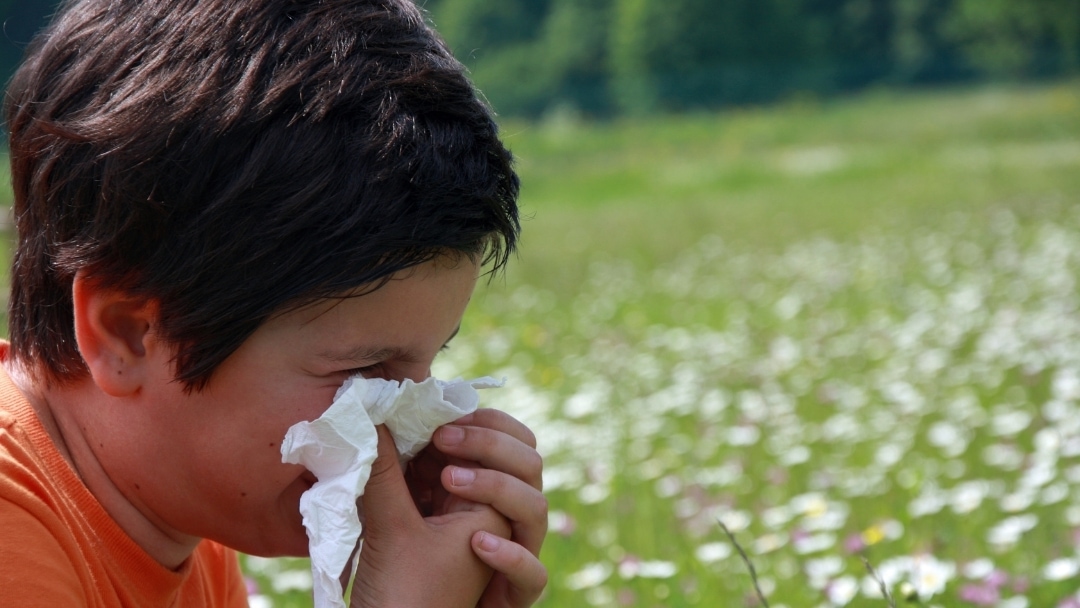In This Webinar
In this webinar, Dr. Dempsey answered the following questions:
- What is Mast Cell Activation Syndrome?
- What are its symptoms?
- What are common triggers of MCAS?
- What is the link between MCAS and infections such as Lyme disease, Bartonella, PANS and PANDAS?
- How having MCAS means that children with eczema, allergies and asthma are more likely to develop autism, ADHD and SPD?
Key Discussions
Mast Cell Activation Syndrome (MCAS) and Its Triggers
MCAS is characterized by an overreaction of mast cells, leading to a variety of symptoms that can significantly impact a child’s quality of life. Understanding and identifying the individual triggers of MCAS, such as stress, toxic exposure, and infections, is essential for managing the condition. Through recognizing these triggers, patients may experience improved food tolerances and overall health.
Importance of Personalized Medical Approaches
Each child’s health profile and the combination of health issues are unique, necessitating a highly personalized approach. A “one size fits all” strategy is ineffective; instead, a tailored protocol that considers a child’s diet, lifestyle, genetic predispositions, and environmental factors is crucial.
Interconnection between Sleep, Hormones, and Inflammation
There is an intricate relationship between sleep patterns, hormonal balance, and the inflammatory response. Disruptions to sleep and circadian rhythm can exacerbate inflammatory conditions. Managing these aspects, possibly through addressing mast cell activity, could lead to improvements in health outcomes, especially for autoimmune and neurodevelopmental disorders.
Diagnosing and Treating MCAS and Related Conditions
Diagnosing MCAS can be challenging because the symptoms overlap with many other disorders. The proper identification often involves a combination of blood tests and careful clinical evaluation. Once MCAS is diagnosed, an effective treatment plan, including the use of antihistamines, therapeutic diets and lifestyle modifications, should be developed, focusing on the root cause of symptoms rather than just their suppression. The approach includes considering co-existing conditions like PANS/PANDAS and tick-borne diseases such as Lyme disease.
The Role of Diet and Environmental Health
Diet and exposure to environmental toxins play a significant role in the health of children. By becoming aware of and minimizing these negative influences through dietary choices such as a low-histamine diet and lifestyle changes, health can improve. Special diets can help manage symptoms of conditions such as SIBO and MCAS. The potential benefits of the carnivore diet was also discussed.
Timestamped Overview
00:00 Patients’ stories guide doctor’s integrative approach evolution.
08:07 Various co-infections make Lyme disease treatment complex.
12:43 Mast Cell Activation Syndrome mimics allergies.
19:05 Concern about increasing tick population and infections.
24:08 Environment and genetics play a role in illness.
28:03 Consider mast cell involvement.
34:17 Severe MCAS patients face complex dietary challenges.
42:11 Abnormality in autonomic nervous system causes symptoms.
46:25 MCAS disrupts sleep due to circadian rhythm.
53:01 Staining biopsy samples for CD117 identifies mast cells.
54:20 Few MCAS patients get a positive tryptase.
01:06:18 GI doctors need CD117 staining instructions.
01:14:09 Limbic retraining system rewires the brain.
01:17:59 Explore magnetic therapy to modulate immune response.
01:20:36 Dr. Dempsey is an active speaker at ILADS and other conferences.
About Tania Dempsey MD
Tania Dempsey, MD, ABIHM is a board-certified internist and diplomate of the American Board of Integrative Holistic Medicine. She received her MD degree from The Johns Hopkins University School of Medicine and her BS degree from Cornell University. She completed her Internal Medicine Residency at New York University.
In 2011, she founded Armonk Integrative Medicine (AIM) which has become a destination practice in Purchase, NY, focusing on complex, multi-system diseases.
Dr. Dempsey is an expert in tick-borne infections, Mast Cell Activation Syndrome and autoimmunity.

She is an accomplished international speaker and writer and was the Keynote Speaker in 2018 at the International Congress on Natural Medicine in Melbourne, Australia. She has been featured on Fox 5 NY News, Observer, Reader’s Digest, Harper’s Bazaar, Huffington Post, Clean Plates, Prevention, SHAPE Magazine, The NY Post and countless other media outlets. For more information, visit www.drtaniadempsey.com
Disclaimer
This webinar is not a substitute for medical advice, treatment, diagnosis, or consultation with a medical professional. It is intended for general informational purposes only and should not be relied on to make determinations related to treatment of a medical condition. Epidemic Answers has not verified and does not guaranty the accuracy of the information provided in this webinar.
Still Looking for Answers?
Visit the Epidemic Answers Practitioner Directory to find a practitioner near you.
Join us inside our online membership community for parents, Healing Together, where you’ll find even more healing resources, expert guidance, and a community to support you every step of your child’s healing journey.
Sources & References
Afrin, L.B., et al. Often seen, rarely recognized: mast cell activation disease–a guide to diagnosis and therapeutic options. Ann Med. 2016;48(3):190–201. doi:10.3109/07853890.2016.1161231.
Afrin, L.B., et al. Mast cell activation disease: An underappreciated cause of neurologic and psychiatric symptoms and diseases. Brain Behav Immun. 2015;50:314–321. doi:10.1016/j.bbi.2015.07.002.
Campbell, et al. Mechanisms of Allergic Disease – Environmental and genetic determinants for the development of allergy. Clin Exp Allergy. 2015
Della Giustina, A., et al.. Vitamin D, allergies and asthma: focus on pediatric patients. World Allergy Organ J. 2014;7(1):27
Feehley, T., et al. Healthy infants harbor intestinal bacteria that protect against food allergy. Nature Medicine. 2019 Jan 14.
Frieri, M. Mast Cell Activation Syndrome. Clin Rev Allergy Immunol. 2018;54(3):353–365. doi:10.1007/s12016-015-8487-6.
Frieri, M., et al. Mast cell activation syndrome: a review. Curr Allergy Asthma Rep. 2013;13(1):27–32. doi:10.1007/s11882-012-0322-z.
Gupta, R.S., et al. The Public Health Impact of Parent-Reported Childhood Food Allergies in the United States. Pediatrics. 2018 Dec;142(6). pii: e20181235.
Hamilton, M.J. Nonclonal Mast Cell Activation Syndrome: A Growing Body of Evidence. Immunol Allergy Clin North Am. 2018;38(3):469–481. doi:10.1016/j.iac.2018.04.002.
Ly, N.P., et al. Gut microbiota, probiotics, and vitamin D: interrelated exposures influencing allergy, asthma, and obesity? J Allergy Clin Immunol. 2011;127(5):1087-94; quiz 95-6
Maksimova, O.V., et al. [Intestine microbiota and allergic diseases]. Zh Mikrobiol Epidemiol Immunobiol. 2014(3):49-60.
Petra, A.I., et al. Spectrum of mast cell activation disorders. Expert Rev Clin Immunol. 2014;10(6):729–739. doi:10.1586/1744666X.2014.906302
Prescott, S.L. Early-life environmental determinants of allergic diseases and the wider pandemic of inflammatory noncommunicable diseases. J Allergy Clin Immunol. 2013;131(1):23-30
Theoharides, T.C., et al. Neuro-inflammation, blood-brain barrier, seizures and autism. J Neuroinflammation 8, 168 (2011) doi:10.1186/1742-2094-8-168.
Tsabouri, S., et al. Modulation of gut microbiota downregulates the development of food allergy in infancy. Allergol Immunopathol (Madr). 2014;42(1):69-77.



